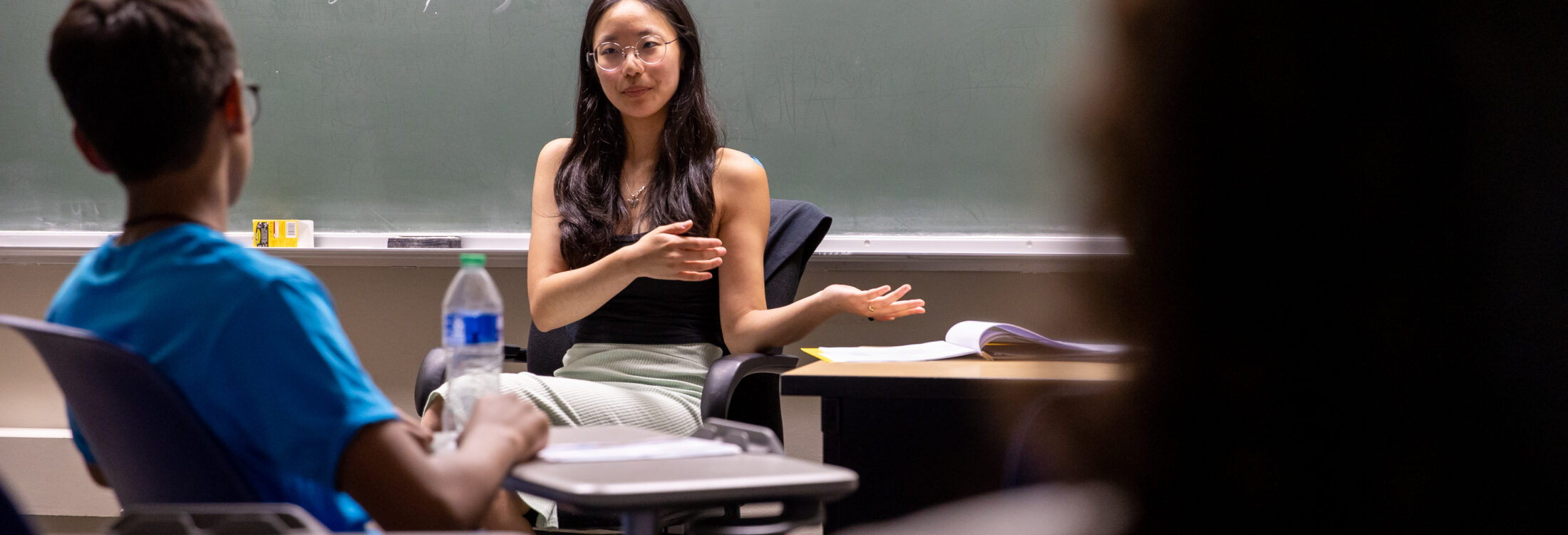Academic Achievement
The Jack Kent Cooke Foundation identifies and invests a portion of its funding in strategic grant initiatives to expand educational opportunities throughout the United States. The Foundation partners with educational leaders that share our commitment to advance the education of exceptionally promising students who have financial need.
High-quality summer learning programs can spark student curiosity and passion, augment academic achievement, nurture intellectual peer support, and influence educational and career trajectories. In focus groups conducted by the Jack Kent Cooke Foundation, high-achieving students have consistently identified rigorous summer enrichment programs as among the most important and valuable experiences during their middle and high school years. Research is clear on summer programs’ ability to stave off summer learning loss, and evidence is growing to delineate the specific benefits of summer programs for academically talented students.
Unfortunately, high-quality summer enrichment programs remain out of reach for many low-income, high-achieving youth who cannot afford the tuition and related costs of residential programs or whose local community does not offer a program specifically geared toward such students. Through the Summer Enrichment Program, the Foundation supports nonprofit organizations or universities who provide access to high-quality summer enrichment programs for high-achieving low-income students entering grades 6 through 12.
Middle and high school students need rigorous academics, real-world applications of what they are learning, and opportunities to envision their future in college and a career. To increase enrollment and success of low-income students in high school Advanced Placement courses, the Foundation partners with organizations that connect high-achieving, lower-income secondary students to advanced coursework and experiential learning that prepares them for a bright future. Through its Advanced Learning grants, the Foundation is increasing enrollment and success of low-income students in high school Advanced Placement courses.
High-quality summer learning programs can spark student curiosity and passion, augment academic achievement, nurture intellectual peer support, and influence educational and career trajectories. In focus groups conducted by the Jack Kent Cooke Foundation, high-achieving students have consistently identified rigorous summer enrichment programs as among the most important and valuable experiences during their middle and high school years. Research is clear on summer programs’ ability to stave off summer learning loss, and evidence is growing to delineate the specific benefits of summer programs for academically talented students.
Unfortunately, high-quality summer enrichment programs remain out of reach for many low-income, high-achieving youth who cannot afford the tuition and related costs of residential programs or whose local community does not offer a program specifically geared toward such students. Through the Summer Enrichment Program, the Foundation supports nonprofit organizations or universities who provide access to high-quality summer enrichment programs for high-achieving low-income students entering grades 6 through 12.
Middle and high school students need rigorous academics, real-world applications of what they are learning, and opportunities to envision their future in college and a career. To increase enrollment and success of low-income students in high school Advanced Placement courses, the Foundation partners with organizations that connect high-achieving, lower-income secondary students to advanced coursework and experiential learning that prepares them for a bright future. Through its Advanced Learning grants, the Foundation is increasing enrollment and success of low-income students in high school Advanced Placement courses.
Contact Us
The Jack Kent Cooke Foundation typically awards only a limited number of grants to nonprofit organizations whose efforts complement our mission of advancing the education of exceptionally promising students who have financial need. We rarely, if ever, fund unsolicited proposals.
However, if you would like to receive updates on our grants, scholarship programs, and other education news from the Foundation, you may subscribe to our Foundation newsletter. For specific inquiries, you may contact our grants department directly by emailing grants@jkcf.org.
